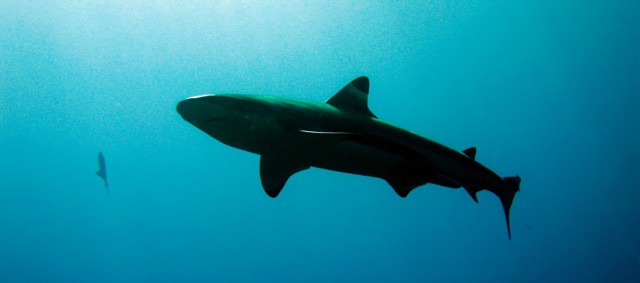At the Top of Their Game: Research by a Former NCEAS Postdoctoral Scholar Adrian Stier Highlights the Factors Necessary for Successful Apex Predator Recovery
May 27, 2016

Shark. Credit: Adrian Stier
Being at the top of the food chain is no guarantee of a species survival. Not only are many of these so-called apex predators susceptible to human impacts, they also are slow to recover from them, which makes these animals vulnerable despite their high-ranking ecosystem status.
Ecologists and conservation biologists have repeatedly sounded the alarm about the global decline of apex predators — a group that includes gray wolves, spotted owls, bald eagles, cheetahs, killer whales and sea otters. However, restoration practitioners have met with limited success despite major efforts to recover some of the world’s most charismatic megafauna.
Related Links